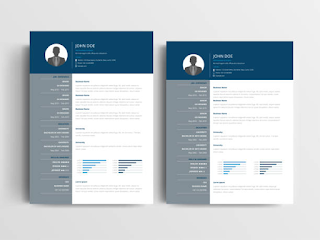Resume Writing and Interviewing:
Purpose of a Resume:
A resume serves as a concise summary of your education, work experience, skills, and qualifications tailored for job applications.
Importance of Resumes:
Resumes offer a quick overview of your suitability for a job, aiding employers in assessing your qualifications and work history efficiently.
Regular Updates:
Regularly updating your resume helps maintain organization and focus on long-term career objectives.
Tailoring Resumes:
Tailoring your resume to specific job requirements showcases your understanding of the role and enhances your suitability as a candidate.
Common Mistakes to Avoid:
Spelling and grammar errors, inclusion of irrelevant information, lack of specificity, overuse of buzzwords, and inconsistencies in formatting and design.
Cover Letters:
Purpose of a Cover Letter:
A cover letter introduces you to the employer, highlighting key skills, experiences, and enthusiasm for the job.
Content of a Cover Letter:
Provide a brief overview of your background, qualifications, achievements, and how they align with the job requirements.
Importance of Cover Letters:
Cover letters complement resumes, offering an opportunity to make a positive first impression and showcase personality.
Key Tips for Cover Letters:
Highlight accomplishments over duties, maintain a professional yet engaging tone, be creative but not excessive in formatting, and ensure conciseness.
Additional Tips:
Understand Job Requirements:
Thoroughly review job postings to grasp the qualifications, skills, and experiences sought by employers.
Conduct Self-Assessment:
Evaluate your skillset to align with job requirements using tools like the Technology Skill Activity "Knowing Yourself - Conducting a Self-Assessment."
List Work Experience:
Begin with recent roles, detailing job titles, company names, key responsibilities, and achievements.
Highlight Education and Skills:
Include educational background, certifications, and relevant skills, both technical and soft, tailored to the job.
Choose Suitable Format:
Select a resume format that accentuates your skills and qualifications effectively.
Write Tailored Cover Letters:
Customize each cover letter to the specific job and company, emphasizing relevant skills and experiences.
Edit and Proofread:
Ensure error-free documents by thoroughly editing and proofreading your resume and cover letter, seeking feedback from trusted sources if possible.
Conclusion:
By implementing the strategies outlined in this section, you can enhance the effectiveness of your job applications, making a strong impression on potential employers and increasing your chances of securing interviews.
Credit:
This guidance is adapted from materials provided by HP LIFE. For more resources and information, visit www.life-global.org. (© 2023 HP LIFE. All rights reserved.)




